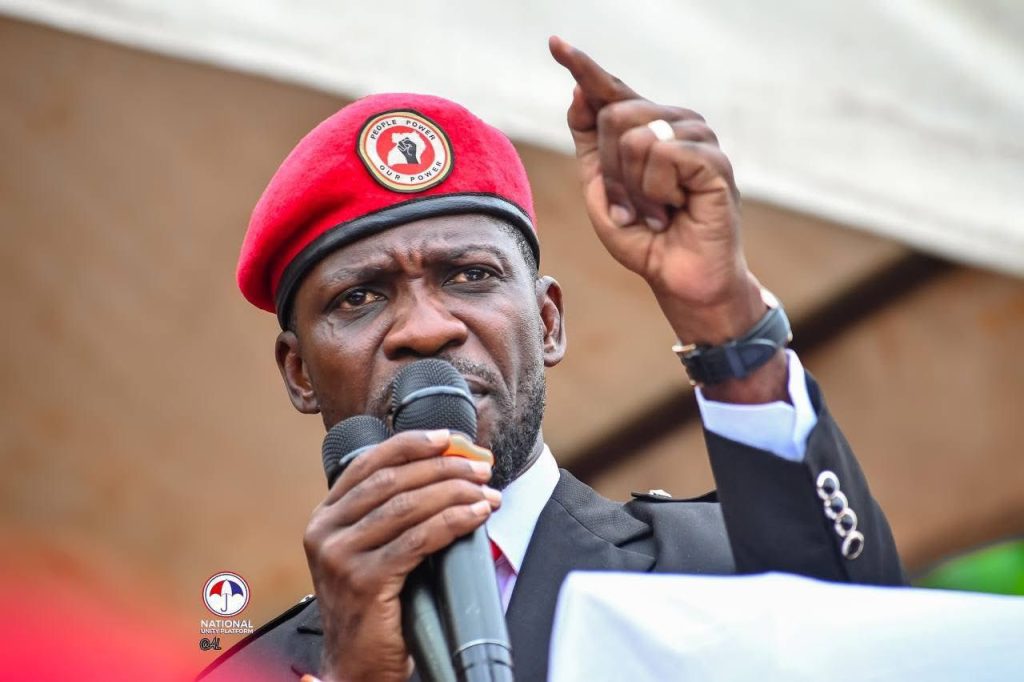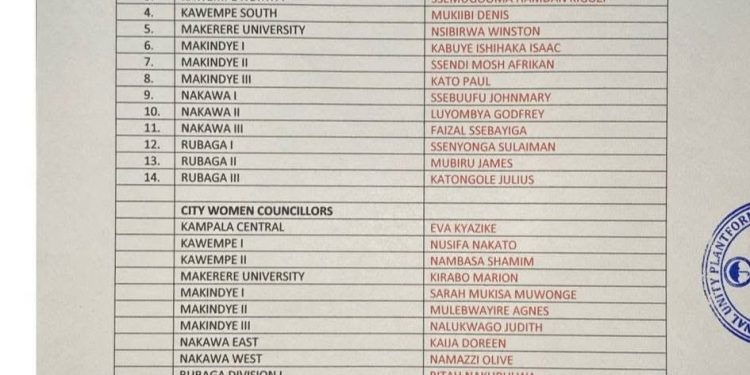Uganda’s leading opposition party, the National Unity Platform (NUP), is facing a serious crisis of internal credibility following the release of a detailed investigative report exposing troubling allegations of extortion and sexual harassment in the party’s ticketing process for political aspirants.

The report, compiled by party enthusiasts, whistleblowers, and concerned insiders, lays bare a shadowy network of actors allegedly manipulating the candidate endorsement process in exchange for cash, favors, and, in some cases, sexual compliance.
It is a revelation that threatens not only the public image of NUP as a youthful and progressive force for democratic change but also its internal commitment to the values of transparency, equity, and justice.
At the heart of the scandal are claims that some senior officials and individuals close to the party leadership established themselves as de facto “gatekeepers,” controlling who received party endorsement ahead of the 2026 general elections.
According to the report, individuals have been consistently cited as orchestrators of a system in which aspirants were expected to pay significant sums of money to secure NUP tickets.
The document, seen by Bossip Ug, was purportedly submitted to the NUP disciplinary committee led by Jolly Tukamushaba, the party’s Deputy President for Western Uganda.
Other members of the committee include Aisha Kabanda, Deputy Secretary General, and Dr. Moses Kanabi, the Organising Secretary.
The investigation aimed to uncover not only the financial irregularities but also the emerging pattern of sexual coercion experienced by female aspirants.
Drawing on several testimonies, the report chronicles a disturbing pattern of abuses.
Written complaints, communication records, confidential interviews, and fieldwork all contribute to a narrative that implicates a wide network of NUP officials and local mobilisers.
These individuals are alleged to have subverted the party’s internal nomination process, intended as a mechanism for democratic participation, by transforming it into a corrupt system that prioritized wealth and personal influence over merit and public service.
Evidence suggests the existence of an organized syndicate, with each member playing distinct roles. Some acted as intermediaries between political aspirants and influential figures within the party hierarchy.
Others are accused of soliciting payments under the pretense of “facilitation,” while certain individuals functioned as collectors of illicit funds.
The investigation further revealed that the group strategically employed bureaucratic delays to pressure candidates into offering bribes. Through this financial leverage, they are believed to have exerted undue influence over ticket allocations.
In a deeper layer of concern, the report highlights gender-based exploitation, an area often underreported in Ugandan political discourse.
One of the female aspirants, testified to experiencing both financial extortion and sexual harassment.
She described having been subjected to unwanted sexual advances, with implicit threats that refusal would lead to her exclusion from the race.
Her account, supported by statements from other complainants, underlines a toxic environment where political ambition is contingent not only on resources but also on compliance with dehumanizing demands.
“These acts are not just violations of party policy; they represent a deep betrayal of democratic principles,” the report states. “They erode public trust and dissuade especially women and underprivileged citizens from engaging in the political process.”
Other aspirants reported similar experiences of intimidation, extortion, and broken promises.
Moses Wyza Bukenya recounted being asked to pay through intermediaries, while Collins Galiwango of Makerere III spoke of multiple payments that failed to yield any procedural fairness.
Eria Kato said he received threats of disqualification unless he complied financially, and Abdul Ssebowa also fell a victim of corroborated pattern of systemic abuse.
Beyond immediate damage to individual aspirants, the report concludes that the integrity of NUP’s internal electoral system has been significantly compromised.
It paints a picture of a party at risk of replicating the very corruption and patronage it was formed to fight.
The report recommends the immediate suspension of all implicated individuals, pending disciplinary and legal review; calls for the establishment of a centralized and transparent candidate vetting system, managed by an independent disciplinary body.
It urges the party to develop robust gender protection mechanisms, including whistleblower protection and reporting hotlines for victims of sexual harassment.
The authors recommend legal redress for victims, especially those subjected to sexual exploitation. They propose a compensation framework for aspirants who lost money in what amounted to a pay-to-play system.
NUP leadership is yet to make a formal public statement in response to the findings.
However, insiders suggest that internal consultations are ongoing, with some members pushing for swift action to salvage the party’s reputation before the 2026 elections. Observers note that how the party handles this crisis may determine its long-term viability as a serious political alternative in Uganda.
Founded in 2020 and propelled by musician turned politician Robert Kyagulanyi Ssentamu alias Bobi Wine’s populist appeal and call for generational change, NUP surged into Uganda’s political mainstream with promises of breaking away from the corruption and repression associated with the ruling National Resistance Movement (NRM) government. But these revelations now cast a shadow over that narrative, exposing fissures within the party’s internal democratic architecture.
As Uganda gears up for another heated electoral season in 2026, the scandal poses a crucial test for NUP, not only as a political organization but as a movement rooted in reform. Whether it will confront the rot from within or sweep it under the carpet remains to be seen.




